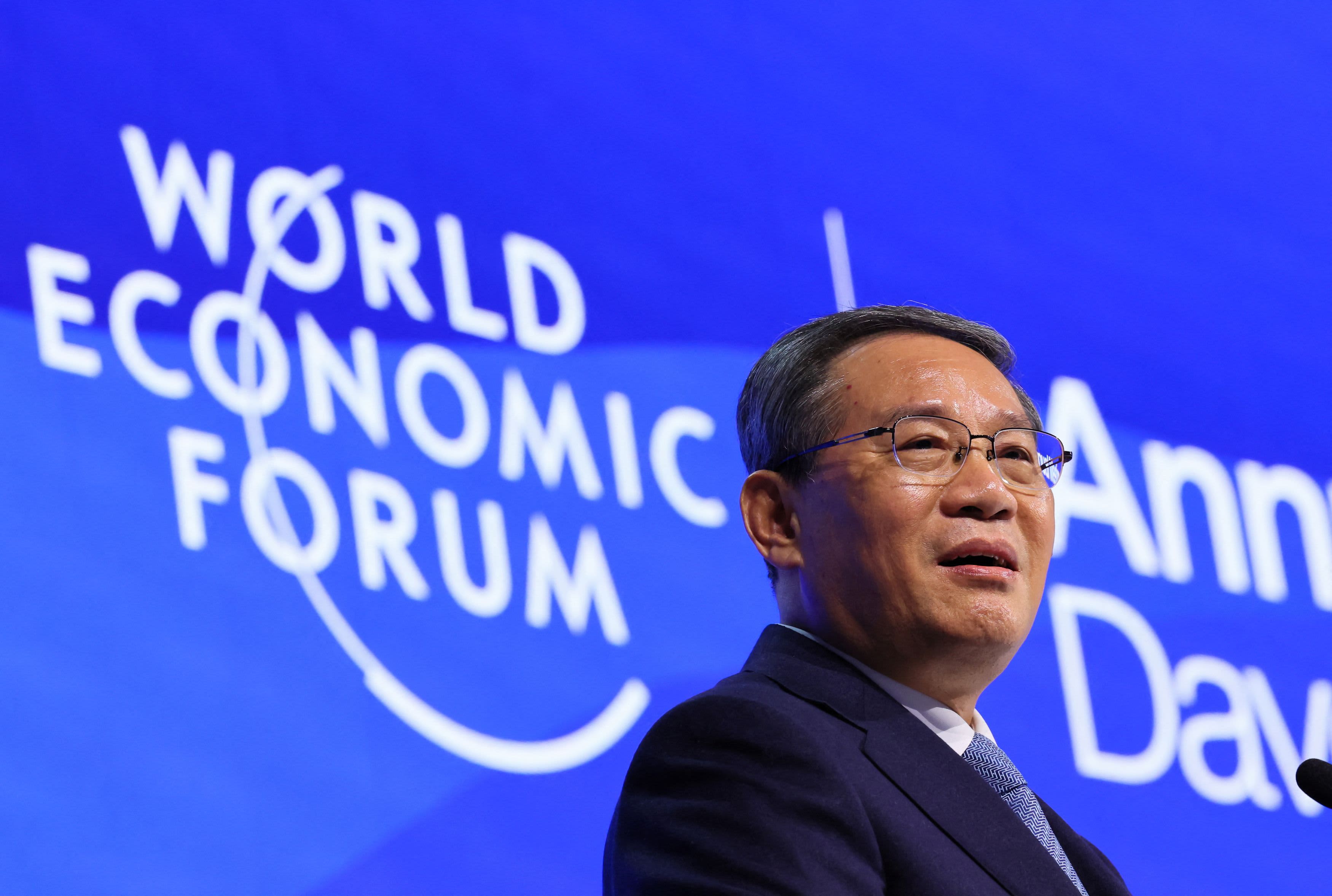
DALIAN, China — Chinese Premier Li Qiang on Tuesday defended the country’s technological development while criticizing efforts to restrict global cooperation.
His remarks, at the opening of the World Economic Forum’s “Summer Davos” meeting in Dalian, China, came amid rising tensions with the EU over imports of Chinese electric cars.
“The rapid rise of China’s new industries is rooted in our unique comparative advantages,” Li said via an official English translation of his Mandarin-language remarks.
He noted the country’s large market, industrial network, labor force, diverse application scenarios and receptive consumers.
“That is how China’s emerging industries get their competitiveness,” Li said.
Earlier this month, the EU announced plans for tariffs on imports of Chinese electric cars. The U.S. has said it will raise duties on the vehicles to 100%.
China and the EU have reportedly agreed to discuss the potential tariffs.
“In many ways the depth of international cooperation determines the height of human development, so it’s essential that we embrace each other with open arms,” Li said, noting the need to “reject” confrontation.
Andrzej Duda, president of Poland, and Pham Minh Chinh, prime minister of Vietnam, gave remarks after Li.
The Chinese premier held state-level meetings in China with the two leaders ahead of the “Summer Davos.” Li had said in his meeting with Duda that China hoped the EU would view the country’s development objectively and create a fair market, according to state media. Poland is part of the EU.
At the Forum’s annual conference in Davos, Switzerland, in January, Li had said in a speech that technological innovation shouldn’t be used as a way to restrict other countries.
Beijing has repeatedly asked Washington to remove restrictions on Chinese companies that prevent them from buying advanced technology from U.S. firms.
Economic outlook
Li on Tuesday said China’s economic growth would remain “steady” in the second quarter, and that he was “confident” the country was “capable” of achieving the official growth target of 5% for this year.
China earlier this month reported data for May that showed retail sales grew by 3.7% from a year ago, beating expectations, while figures on industrial activity grew less than forecast. Real estate’s drag on the economy persisted, the data showed, while exports have held up as a supporter of growth.
When asked by World Economic Forum founder Klaus Schwab on stage about China’s economic policy, Li drew analogies from traditional Chinese medicine and boxing for explaining why Beijing was pursuing a more targeted and compilation-of-parts approach.
“In the past years we’ve been taking a lot of measures and done a lot that are aimed at keeping the [economic] roots healthy,” Li said, noting Beijing’s efforts to support technological innovation and businesses.
He said that China was adding support for its aging population and looking to it as a new driver of growth. Li did not elaborate on efforts to boost consumption beyond a previously announced trade-in policy.
Source: CNBC
